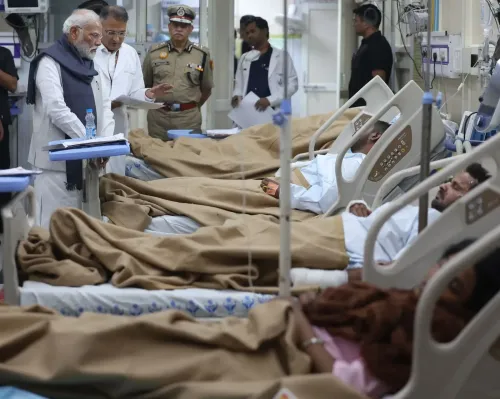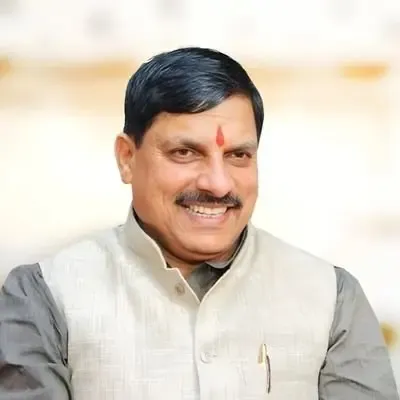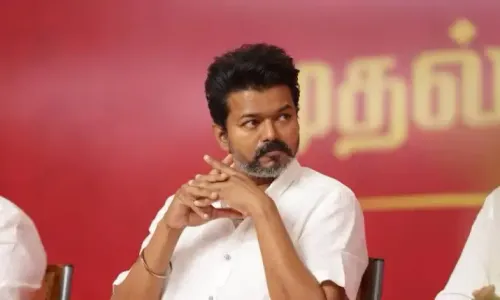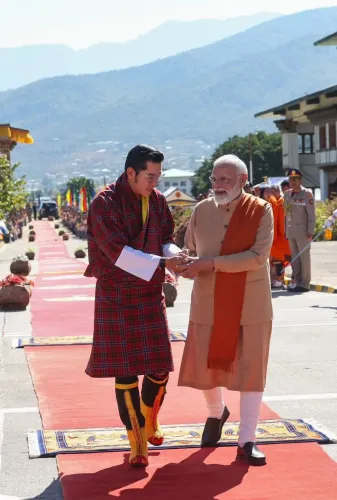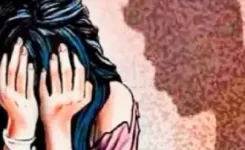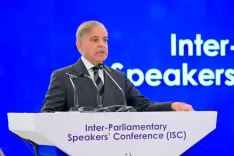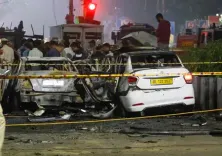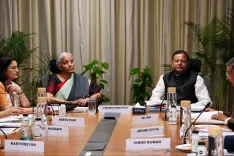Is the Government Really the Nation? Manoj Jha Critiques Centre's 'Op Sindoor' Response
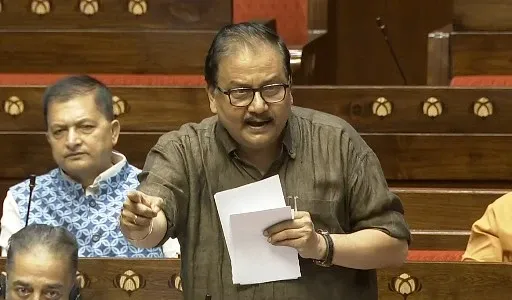
Synopsis
Key Takeaways
- Manoj Jha's strong critique of the government's response to the Pahalgam attack.
- Call for accountability regarding the sacrifices of the armed forces.
- Emphasis on national unity that should not shield the government from criticism.
- Insight into the government's communication strategy and its implications.
- Recognition of individual lives lost rather than reducing them to numbers.
New Delhi, July 30 (NationPress) RJD Rajya Sabha MP Manoj Jha delivered a powerful address in Parliament, harshly criticizing the Centre for assuming it represents the nation and for politicizing the bravery of the Indian armed forces.
During the discussion on 'Operation Sindoor' in the Rajya Sabha, Jha raised significant concerns regarding the government's reaction to the Pahalgam terror attack and challenged the narrative that Pakistan did not damage any Indian assets during the operation.
He rebuked the Centre for not acknowledging the loss of lives amidst cross-border firing in Jammu and Kashmir while 'Operation Sindoor' was in progress.
"The Pahalgam attack was not merely a personal tragedy for the victims' families but a shared sorrow for the entire nation. It's time for Parliament to apologize to the public for all terror incidents—be it Uri or Pahalgam," Jha emphasized, calling for sincere introspection from the country's political leaders.
He denounced the government's claims that Pakistan was incapable of inflicting harm on Indian assets.
"The NSA claimed that India didn't even lose a fragment of glass. I would like to ask—are the residents of Poonch and Rajouri less significant than a piece of glass? Why were the lives lost not mentioned?" Jha questioned, highlighting what he deemed an erasure of sacrifice and loss.
Manoj Jha also criticized the government's opacity, mentioning reports that intelligence agencies had foreknowledge of the attack.
"If this is accurate, then what actions were taken? We remain in the dark about it to this day. National security is not merely a slogan but a commitment," he stated.
Jha asserted that national unity in times of tragedy should not be exploited to shield the government from accountability.
"The essence of our country is that no matter the challenges or calamities faced, the entire nation begins to think alike. However, this national solidarity during grief must not become a barrier against legitimate criticism of the government," he asserted.
Making a distinction between the Indian armed forces and political rhetoric, he remarked, "As Milind stated yesterday, every nation has an army; the Pakistani Army has a nation. The strength of our Army is that they do not wear any religion or ideology. Their hearts and sleeves are adorned with the Tricolour. This is the mindset we should adopt as well."
He also referenced a contentious BJP social media post made following the Pahalgam attack.
"When the Pahalgam incident occurred, an X handle tweeted, 'Unhone dharam poocha, jaati nahi (They inquired about the victims' religion, not caste).' We lost lives, and that tweet further hurt Bharat Mata. The terrorists aimed for this division because there was hatred in every bullet. Yet, the soil of our country did not permit that hatred to affect its citizens.
He commended the unity and resilience displayed by the populace, stating, "They (terrorists) were unsuccessful. India demonstrated its strength by sending Sofiya Qureshi and Vyomika Singh, who attended briefings and filled our hearts with pride. That is the India we desire. They cannot divide India based on religion."
Condemning the ruling party for comparing terrorism incidents during the Modi administration with those under the UPA, Jha remarked, "I hear people claim that incidents decreased during our tenure, whereas previously they were more. I want to emphasize that humans are not statistics; you cannot archive them by saying this person died. They are individuals who lost loved ones. No one can fill the void left by the loss of life."
"It is unacceptable for life to return to normal the next day. Today, an attack happened; shall we forget it tomorrow? What benefit comes from politicizing the bravery of our forces? We have substantial issues to address politically, but not the valor of our forces," he stated.
He questioned Defence Minister Rajnath Singh's statements in the Lok Sabha and scrutinized the government's communication strategy.
"Rajnath Singh mentioned that he was presenting India's position. In the outreach of 'Operation Sindoor', leaders from various political parties went to convey India's stance globally. This is India's Parliament; the government should have articulated its position here. We had inquiries for the government, not for India or its forces. The government is not synonymous with the nation. Parties may rise and fall, but let the country endure (Desh rehne dijiye)," he stated.
He also criticized the frequent references to late Prime Minister Jawaharlal Nehru in parliamentary discussions, stating, "This government uses Nehru as a lifeline."
Jha lauded the exceptional response from Kashmiris following the Pahalgam terror attack, noting that people throughout the region showed unwavering support for the victims.
He concluded by expressing concern over the diminishing sense of constitutional responsibility.
"This Cabinet has lost the understanding of collective responsibility," he remarked, adding that diplomacy should not be treated as a "trial balloon."
While commending the government's initiative to dispatch goodwill missions abroad, he proposed that similar efforts should be made within the country.
"No minister should make derogatory remarks against an Indian officer for her surname and evade consequences," he concluded.

